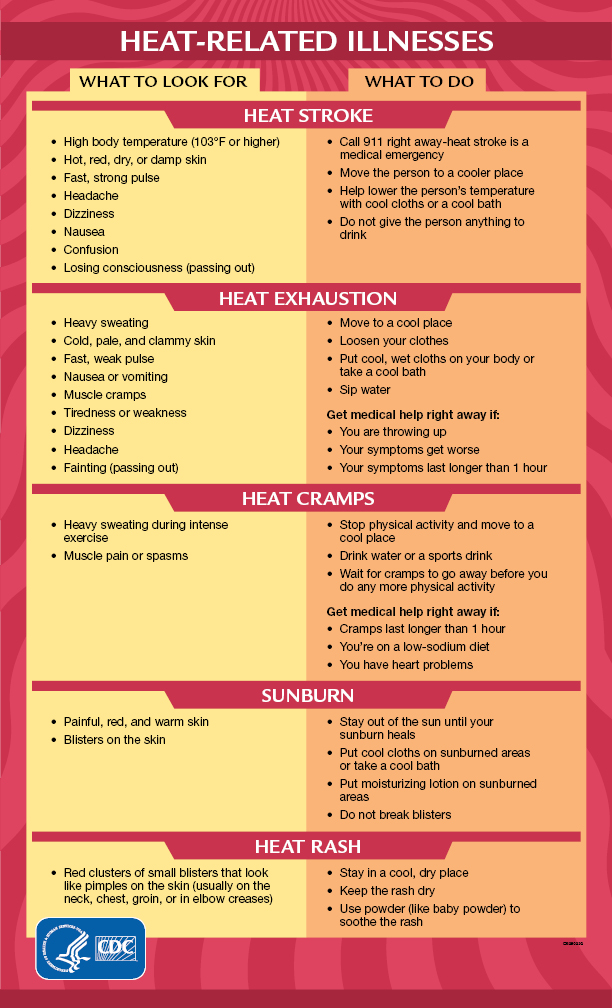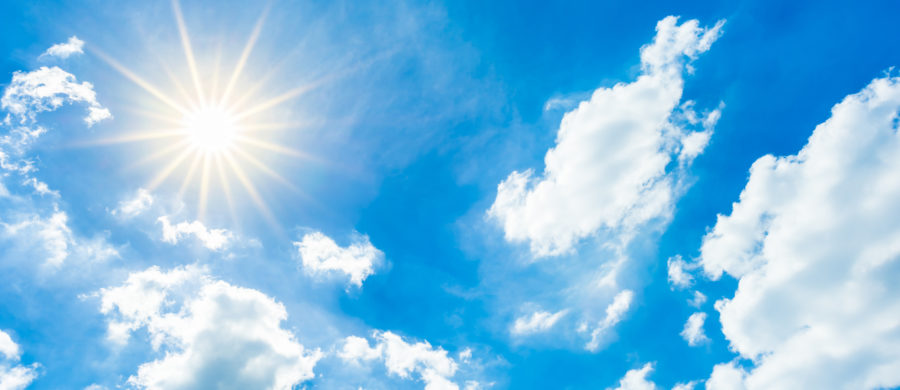What to look for. What to do.
Some Individuals are at Greater Risk for Heat-Related Illness
Boulder County is partnering with cities and towns to make sure those at most risk for heat-related illness have access to places to cool down.
What is heat-related illness?
With temperatures due to rise into the triple digits this week and throughout the summer, Boulder County is taking steps to make sure residents and visitors avoid heat-related illnesses.
Heat-related illnesses include heat exhaustion or heat stroke, which can cause damage to the brain and other vital organs. These conditions happen because the body’s temperature rises faster than the body can cool itself down.
“Some members of our community are at greater risk for heat-related illness, particularly if they use prescription drugs, are obese, or have heart disease or poor circulation,” said Lisa Widdekind, Boulder County Public Health Emergency Management Coordinator.
Generally, older adults, the very young, people with mental illness and chronic diseases, and people living without air conditioning are at highest risk for heat-related illness. However, heat can also affect young and healthy people if they participate in strenuous physical activities during hot weather.
Boulder County is partnering with cities and towns to make sure those at most risk for heat-related illness have access to places to cool down. Boulder County Public Health staff will also be monitoring emergency room activity to track visits due to heat-related illness.
“We’re prepared to open cooling stations if people need them,” said Widdekind. “They’ll likely be recreation and senior centers where anyone who needs to can come for a few hours to cool down. We’ll also have staff available to see if they need additional help to get through the heat.”
Prevention, Symptoms and Treatment
To avoid illness from heat, public health officials recommend that people:
- Drink water to stay hydrated; don’t wait until you’re thirsty. Avoid sugary drinks or alcohol, as they cause the loss of body fluid.
- Stay in an air-conditioned area, such as a shopping mall or library. Even a few hours in an air conditioned environment can keep the body cool.
- Wear lightweight, light-colored, loose-fitting clothes.
- Limit outdoor activity to when it’s coolest.
- Avoid preparing or eating hot meals; they add to body heat.
- Provide pets with plenty of fresh water.
- Visit adults who are at greater risk least twice daily, and watch them closely for signs of heat exhaustion or heat stroke.
Those at greater risk for heat exhaustion or heat stroke should be watched closely. Anyone experiencing signs of heat exhaustion should be moved to a cool place as soon as possible. Applying cool, wet cloths to their head and bodies, or placing them in a cool bath can also help cool them down. People should get medical help immediately if they vomit, their symptoms last longer than one hour, or their symptoms worsen.
Use this chart to understand what to look for and what to do in cases of heat-related illness:


